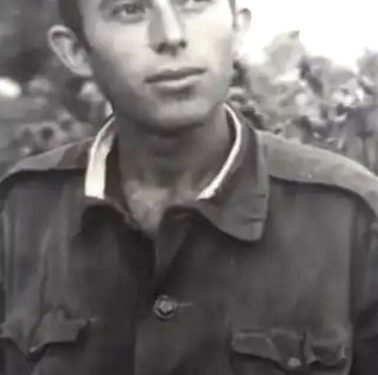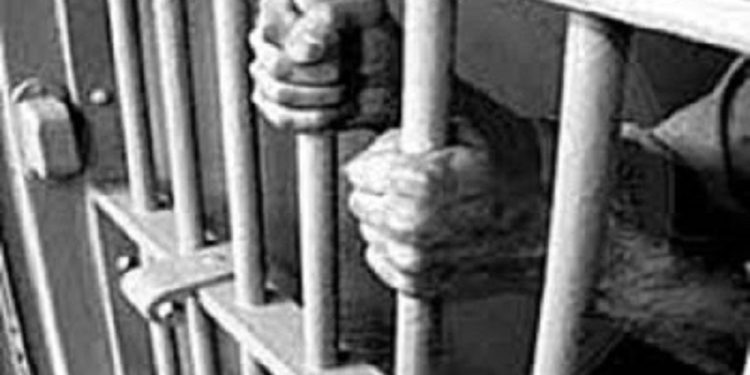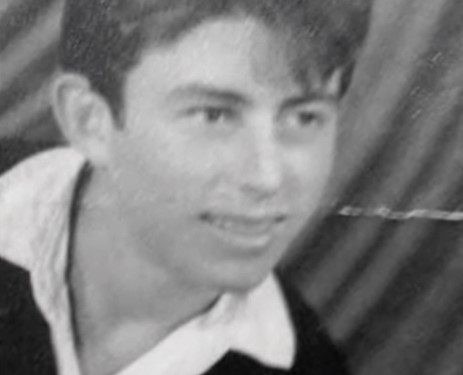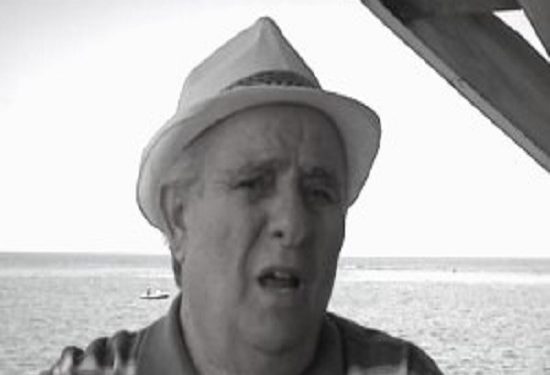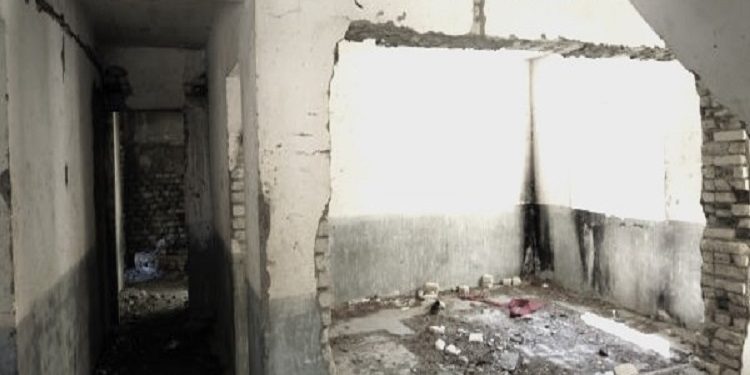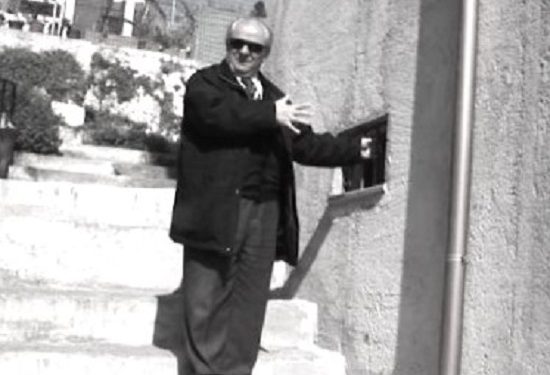By Shkëlqim Abazi
Part forty
Memorie.al / I were born on 12. 23. 1951, in the black month, of the time of mourning, under the blackest communist regime. On September 23, 1968, the sadistic chief investigator, Llambi Gegeni, the ruthless investigator Shyqyri Çoku, and the cruel prosecutor, Thoma Tutulani, brutalized me at the Branch of Internal Affairs in Shkodër, they split my head, blinded one eye, deafened one ear, after breaking several ribs, half of my molar teeth, and the thumb of my left hand. On October 23, 1968, they took me to court, where the pitiful Faik Minarolli gave me a ten-year political prison sentence. After half of the sentence was cut, because I was still a minor, sixteen years old, on November 23, 1968, they sent me to the political camp of Reps, and from there, on September 23, 1970, to the Spaçi camp, where on May 23, 1973, during the revolt of the political prisoners, four martyrs were condemned to death and executed by firing squad: Pal Zefi, Skënder Daja, Hajri Pashaj, and Dervish Bejko.
On June 23, 2013, the Democratic Party lost the elections, a process more than normal in the democracy we aspire to. But on October 23, 2013, the General Director of the “Renaissance” government sent Order No. 2203, dated 10.23.2013, for the release from duty of a police officer. Thus, Divine Providence was interwoven with the Neo-communist “Renaissance” Providence and, precisely on the 23rd; I was replaced by, no less and no more, but the former Security operative of the Burrel Prison. What could be more significant than that?! The former political prisoner is replaced by the former persecutor!
The Author
SHKËLQIM ABAZI
R E P S I
(Forced Labor Camp)
Memoirs
The First Meeting
(The Boat Sunk in the Trough)
One Sunday, a day dripping with water that chilled you to the bone, the town crier shouted my name several times in a row. The first time, I took it as a slip-up-mistakes that happened often with an ignorant crier like Malua-so I wasn’t impressed. But when he repeated it a second, then a third time, and continuously after that, I grew worried.
Initially, I thought the police were looking for me to punish me for a cigarette lit in the barrack, because the internal guard had caught me red-handed and yelled: “Hey you! Are you going to put out that smoke, or do you want me to extinguish it under the rain and then send you to the ‘hole’ [solitary confinement]?!” I didn’t fuss; I put out the cigarette. When I heard the crier calling for me, I shuddered: “Oh God, now, after two hours, he remembers it?! Now I’ll spend half the day in the cell and greet the morning in this filth!”
To be ready, I thought to ask my neighbors for some thick clothing…! But the good news was on its way! At the third call, I heard him utter the words I least expected at that moment: “Get your bags ready, for a meeting!”
I was stunned; I couldn’t believe my ears. I even took it for a trick because I didn’t dare think someone would take the trouble to set off for a visit at that time, under that dense, relentless rain. It had rained heavily all week and was still continuing. From the lead-colored sky, a prolonged, ceaseless downpour emptied out. Apparently, the Almighty Gods were angry with the country’s rulers who sought to usurp their thrones; they had unleashed the storm with thunder and lightning. In a fit of rage and spite, they discharged and poured out unprecedented amounts of water from the heavenly reservoirs those days.
On the northeast face of the hill, swollen torrents rolled violently down the slope. In the insane fury, the echoing whirlwinds scoured and swept away everything they encountered: the sludge of the slope and the piles of inert materials at the mouth of the stream, where the soil we dug landed. The entire deluge of debris whirled into the lowlands, into the segment of the road that climbed steeply, toward the depths. The rush of the accumulated masses was so unprecedented that the sludge crossed the road trace and layered itself on the pebbles of the Fan River, where phantasmagoric islands seemed to sprout from nothing, completely changing the physical configuration of the valley.
On the highway, amidst that dreadful mud, car tires sank up to the chassis, and the feet of pack animals and passersby disappeared up to their knees; they struggled to step any further. On this single connecting artery, vehicles, people, and animals sploshed along, carrying supplies into the depths of Mirdita-from food for the residents and livestock to clothing and kerosene-while on their return, they transported lumber for heating the urban population nearby and farther away, as well as beech and pine trunks for the sawmill establishment in Rrëshen and for supporting the galleries in the Spaç mines.
It was the end of winter. We were just a little distance away from the spring of 1969. Perhaps somewhere farther south, in my city, they were celebrating Summer Day outdoors; but here…? Blistering cold, storm, and filth! In our parts, the earth regains its vitality in March, the grass sprouts, trees grow buds and open their first blossoms, birds perform courtship pirouettes, children play cheerfully in the meadows, and passionate young people exchange kisses; but here…? Dampness that penetrated the bone, a razor-sharp cold that made your lips blue, and turned your nose, ears, and fingers red! The icy, relentless rains; a raging north wind that snorted and roared throughout the valley.
We prisoners, in addition to the political sentence that the regime had imposed on us, had also been punished by nature, forced to move countless tons of mud on the rubber soles of our plastic opinga (peasant sandals), in the endless back-and-forth journey between the camp-sleeping quarters and the work site. Every morning and evening, when we set off and returned from work, a dreadful swamp formed on the “Golgotha” road. Hundreds of feet sank and were pulled out shllap-shllup in the mud, and the rumbling they spread sounded like thousands of champagne bottle caps popping under gas pressure, giving the impression of a battlefield, but without guns or blood.
The Correspondence Mechanism (Posta)
In the prisons, there was no such thing as privacy. Life there crawled in maximum transparency, as if inside a huge aquarium; actions were open and controlled, like on a giant radiographic screen. No matter how much you tried to camouflage yourself, it was impossible to hide from the eyes of the crowd for long; if one person didn’t see you, another would. Hypocrisy had no place, and even if you managed to momentarily avoid it, this was simply a temporary illusion that couldn’t be repeated over and over. Three hundred men swarmed twenty-four hours non-stop within that two-thousand-square-meter beehive. Thus, nothing went unnoticed.
After all, this was the goal of communism: loss of privacy, human herding, and brainwashing!
It happened that even honest people, for specific reasons, were forced to write and post in the “coffin box” (arca e kobit). To put the envelope in that box, the needy required a special courage. Therefore, to avoid misunderstandings, they would post the letter in the middle of the day, possibly during the line-up for the roll call or during the gathering at the soup cauldron, where the crowd of people was densest.
Hysen Haxhia’s Testimony
…It was precisely these wretched specimens who, when they had nothing left to invent against their fellow inmates, turned and wrote against each other, and sometimes even against them, however paradoxical this may seem. For one such unfortunate soul from the surroundings of Librazhd, my friend Hysen Haxhia spent a month in the hole.
Here’s what happened! One midnight, Hysen was awakened, concerned by an unusual noise. Near his ear, he heard some scratches; he thought a mouse was gnawing at his bread ration, which he kept on a shelf above his head. He opened his eyes, and what did he see! His neighbor was scratching on paper at this late hour! “Oh great God, not even the night can hold this man”?!
Half-asleep, he reached out and snatched the piece of paper. Caught off guard, the man didn’t have time to react. Hysen, under the weak light that fell from the ceiling, tried to read the content. It was impossible; the bad handwriting and poor lighting hindered him. He got up and went into the corridor between the beds, where he began to read aloud. “Oh ‘God’!” he cried out, surprised by what was written there. He did not want to believe his eyes, so he went up the stairs to get even closer to the letter./Memorie.al




